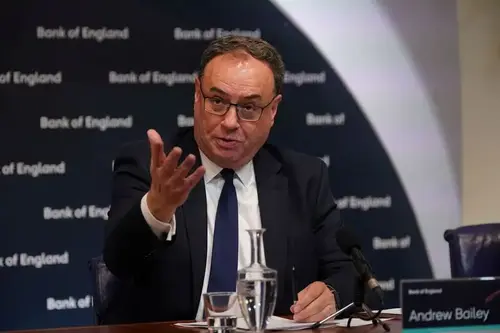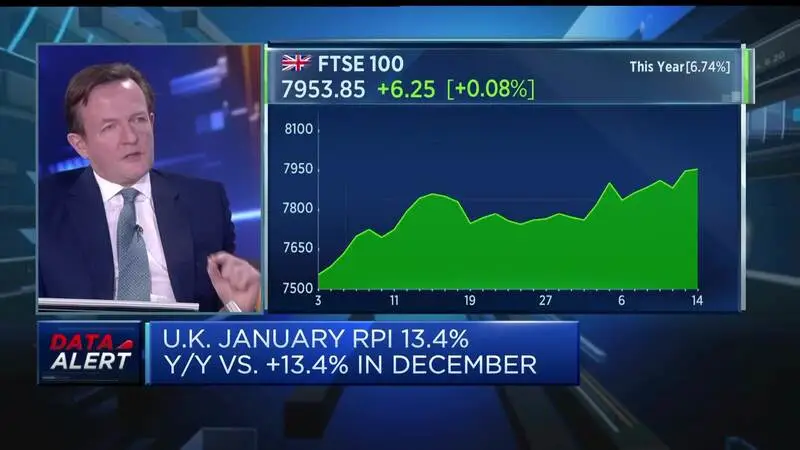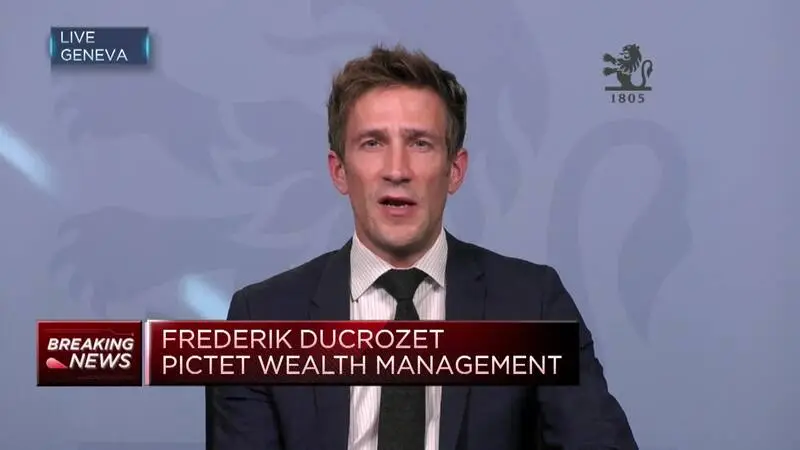
A 'cocktail' of sticky inflation and a tight labor market boosts Bank of England rate hike bets
LONDON — A tight labor market and comparatively slow return to earth for inflation means the Bank of England is likely to press ahead with a further interest rate hike in March, economists suggest.
The market probability of a further 25 basis point increase at the Monetary Policy Committee's next meeting nudged up past 73% on Wednesday before sliding back to around 66% by Thursday morning, according to Refinitiv data.
The U.K. annual inflation rate dipped for a third straight month to 10.1% in January, landing below consensus forecasts, even as high food and energy prices continue to squeeze British households.
Although inflation is coming down, the rate of price increases fell by just 1% between October and January — marking a comparatively small decline compared to those seen in other major economies.
"With the FTSE 100 recently reaching record highs, investors will be somewhat comforted by the direction of travel for prices," said Richard Carter, head of fixed interest research at Quilter Cheviot.
"However food prices remain a major driver of U.K. inflation, continuing their upwards march in January with an eye-watering 16.8% increase. Food industry bosses have warned that prices will take considerable time to come down."

Tuesday's employment figures for December also offered little indication that the labor market is beginning to ease, with unemployment remaining at 3.7%. Growth in average weekly earnings excluding bonuses increased to an 18-month high 6.7% during the final three months of 2022.
Along with the supply-side shortfall, the U.K. is navigating widespread industrial action among public sector workers, as pay increases continue to lag behind inflation.
Bank of England Governor Andrew Bailey last week urged workers and employers to consider the expected downward inflation trajectory when negotiating pay settlements.
"The cocktail of a tight labour market and inflation failing to cool off quickly will remain a cause of concern for Bank of England policymakers, which may mean the Bank's aggressive strategy stays in place," Carter added.
The U.K. narrowly avoided recession in the fourth quarter as growth stagnated, but the MPC sees a shallow recession beginning in the first quarter of 2023 and lasting for five quarters.
"Despite a slowing economy, wages are still rising rapidly in a backdrop of stagnant labour supply, which risks keeping services inflation elevated," said Hussain Mehdi, macro and investment strategist at HSBC Asset Management.

"This means the Bank's Monetary Policy Committee is likely to deliver another rate hike next month, with some chance of further tightening at subsequent meetings if wage growth measures remain inconsistent with the Bank's 2% target."
The 10.1% January inflation figure was exactly in line with the Bank's projections, with four of the twelve consumer price index (CPI) divisions making downward contributions to the headline inflation rate. The largest came in the form of a 7.2% annual fall in used car prices, while petrol and diesel price inflation also continued to cool.
"The Bank of England will be pleased to see that services inflation is starting to subside, as this tends to be more persistent than goods inflation," said PwC Economist Jake Finney.
"They will also be reassured by the latest data indicating that private sector wage growth is easing. However, our view is that the Bank of England hasn't seen quite enough to shift the dial — so we expect them to deliver one last 25bp rate hike in March."
Market reaction
Despite the increased market pricing for a further 25 basis point hike in March, U.K. government bond yields fell sharply across the yield curve on Wednesday morning before recovering slightly. The 2-year gilt yield was little changed at 3.75% early on Thursday while the 10-year yield hovered around 3.47%.
James Athey, investment director at Abrdn, told CNBC on Wednesday that the seemingly dovish interpretation of the bond market represented a slight relief. But he pointed to the similar pattern of data in the U.S. in recent months, noting that "all it took was a couple of data points really for the market to start to considerably reassess the outlook for policy."
Athey suggested that gilts positioning had significantly influenced the yield move, with excess positioning at the short end of the curve coming off in recent weeks and causing the front end to underperform.
"So I think we'd got to the stage where positioning was either cleaner or actually a little bit short U.K. rates, and so marginal progress on inflation has seen a pretty strong rally this morning.






